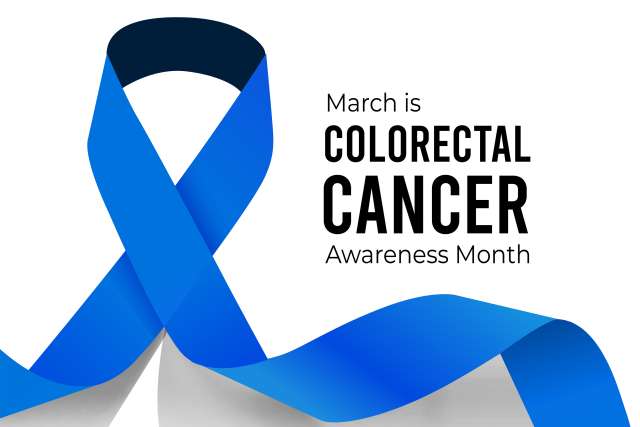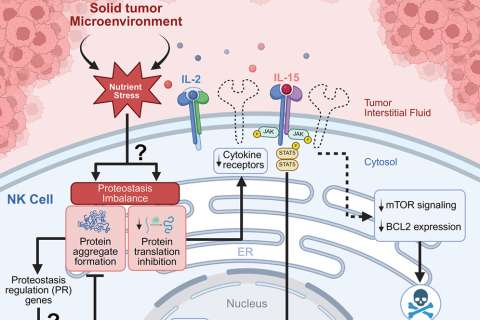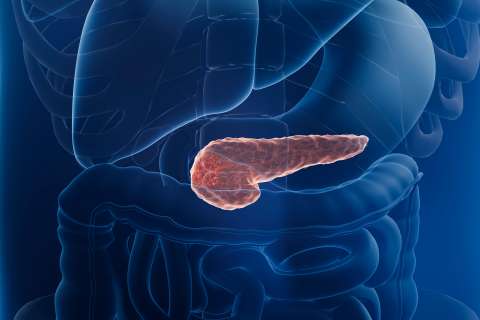As rates of colorectal cancer rise among younger adults, updated guidelines calling for screenings to start at age 45 instead of 50 are expected to lead to earlier detection and improved outcomes.
Chanthel Kokoy-Mondragon, MD, a gastroenterologist at UCLA Health’s Santa Clarita Digestive Diseases, said low-risk people can choose among a range of options, from an at-home stool test to a colonoscopy.
“What I recommend is for people to discuss with their physician the options that are available and choose the test that best suits them,” Dr. Kokoy-Mondragon said.
An earlier start to routine screening is expected to find cancer sooner, when it’s easier to treat.
“That’s the goal of lowering the age to 45, to see if we can find these patients earlier, when they are asymptomatic,” she said. “Once patients present with concerning signs or symptoms that could mean that an advanced polyp or cancer is already present.”
Earlier colonoscopies can also prevent colorectal cancer by removing polyps, which are growths in the colon or rectum that can develop into cancer over time.
“Colonoscopy is a great preventative and therapeutic tool, which can remove precancerous polyps before they have a chance to grow into cancer,” Dr. Kokoy-Mondragon said.
Rise in cases
In 2021, the U.S. Preventive Services Task Force issued a new recommendation that colorectal cancer screening for people at average risk should start five years sooner. The change to 45 was based on the trend of growing cases among younger adults.
“It’s unclear what the exact cause is, however there are multiple factors that have been associated including genetics, environmental, diet and obesity-related risks,” Dr. Kokoy-Mondragon said.
Colorectal cancer is the third-leading cause of cancer death in men and women. A family history of colon cancer as well as obesity, inflammatory bowel disease, smoking and heavy alcohol use are risk factors.
“Definitely genetics is a huge component, which is why people with a family history of colon cancer should get screened at an earlier age, either at age 40 or 10 years before their first-degree family member was diagnosed, whichever is earlier,” Dr. Kokoy-Mondragon said. “As an example, if they have a family member diagnosed at 45, then they should start screening at 35 and be evaluated for a genetic predisposition for colon cancer.”
People who are Black, Latino or Native American are at greater risk of developing colorectal cancer.
Symptoms that are concerning and should prompt medical evaluation include rectal bleeding, which is one of the most common symptoms seen in younger patients, Dr. Kokoy-Mondragon said. Other symptoms include: abdominal pain, changes in stool habits or shape of stools, unintentional weight loss, decreased appetite, worsening constipation and ongoing diarrhea.
Screening choices
While colonoscopies are the gold standard for colorectal cancer screening, Dr. Kokoy-Mondragon said non-invasive, self-administered tests are an option for low-risk patients.
“There’s at-home tests for people that feel uncomfortable going under sedation or would rather not have an invasive procedure,” she said. “The key is they’re getting some form of screening.”
A fecal immunochemical test (FIT) looks for microscopic traces of blood in a stool sample which could indicate a polyp or colon cancer. The test must be done annually.
Another type, called Cologuard, tests for abnormal DNA and blood in a stool sample that could indicate polyps or cancer. It can be performed every three years.
“If any of these at-home tests are abnormal, then a colonoscopy should be performed to further evaluate the cause for the abnormal test,” Dr. Kokoy-Mondragon said.
Colonoscopies, rather than at-home tests, are warranted for people with a family history of colon cancer, those who have previously had polyps and anyone with abnormal symptoms such as rectal bleeding.
A colonoscopy is performed under sedation, typically at an out-patient surgery center. It allows a doctor to examine the inside of the colon and rectum using a long flexible tube with a tiny light and video camera. Instruments can be passed through the tube to remove any polyps. The procedure typically lasts about 30 minutes and patients must arrange for someone to drive them home.
But Dr. Kokoy-Mondragon said even many patients who qualify for at-home testing are opting to get a colonoscopy instead because it can generally be done less frequently, is well tolerated and is both preventative and therapeutic.
“If your colonoscopy is normal, meaning there were no polyps, then typically you can repeat your colonoscopy in 10 years vs. the more frequent at-home tests,” she said.
A test to screen and treat
Dr. Kokoy-Mondragon said colonoscopies are a distinctive screening tool because of their ability to find polyps and immediately take them out.
“The goal is to remove these pre-cancerous polyps before they cause any issues,” Dr. Kokoy-Mondragon said. “It’s not only a screening – just telling you that you have polyps – it’s therapeutic in the sense that it’s removing the polyps at the time of the exam.”
Colonoscopies require advance preparation to empty the bowels so the camera inserted into the colon can reveal polyps. The process involves a clear liquid diet the day before the procedure and typically drinking laxatives mixed in liquid to cleanse the bowel effectively.
Just like screening tests, bowel prep choices have also expanded.
“There’s a lot of options that we have available now,” Dr. Kokoy-Mondragon said. “People tend to have a hard time with the big gallon of prep. We have lower-volume preps and even pills available now.”
She said the prep is extremely important for a successful exam.
“If the colon is still coated in stool or residue, it makes finding polyps much more difficult and typically we ask the patient to repeat the prep and the procedure,” she said.
If any polyps are removed, a pathologist determines what kind they are because different polyps have different propensities for becoming cancerous, Dr. Kokoy-Mondragon said.
Depending on the findings, people are typically advised to have another colonoscopy in anywhere from three to 10 years.
“If someone has a large amount of polyps, typically over 10, then we recommend another colonoscopy in one year,” she said.
The U.S. Preventive Services Task Force advises colon cancer screening until age 75. For people 76 to 85, the group recommends selective screening based on patient heath and preferences.
“Usually after 75, it’s more of a patient-doctor discussion depending on their overall co-morbidities and their colon cancer risk,” Dr. Kokoy-Mondragon said.
For patients who are ultimately diagnosed with colon cancer, she said treatment options, such as chemotherapy, have improved dramatically, as have survival rates.
“It’s definitely something that’s very treatable and the earlier we can capture it, the better outcomes there tend to be,” she said.
Dr. Kokoy-Mondragon said UCLA Health patients can obtain colorectal cancer screening referrals from their primary care doctors based on their preferences.
“It’s ultimately the patient’s choice,” she said. “We’re here to work with patients in giving them the various options and our recommendations based on their medical background. Colonoscopy is still the preferred screening option because it works as both a preventive and therapeutic measure but at-home tests may also be an option for many patients. The key is for patients to have some form of screening. The best test is the test that ultimately gets done.”
Courtney Perkes is the author of this article.




